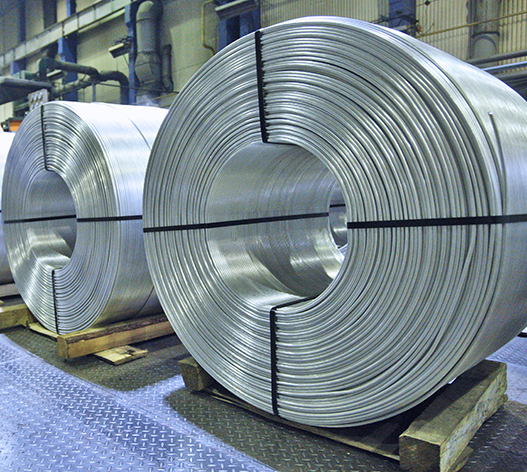EU policymakers have long been criticised for their inconsistent and often self-harming approach to sanctions against Russia. Part of it is due to the very nature of the bloc as it needs to balance the often-contradicting interests of all its members. The newly proposed ban on some aluminium products from Russia may be another example of ill-conceived restrictions that do more harm than good.
Harbor Aluminum in a November 15 research note citing own sources said that the European Commission was considering introducing a ban on Russian imports of aluminium wire rod, foil, and extrusions. While the ban on foil and extrusions may not be impactful as Russian imports to the EU are relatively small, the aluminium foil ban, if introduced, will be very big deal – because it can ultimately hit hard European industry, while implementation of EU’s green energy initiatives can become problematic.
Aluminium wire rod is widely used in renewable energy developments because it is a key element employed in cables used to connect such projects to the energy grid. In addition, Russia-made aluminium wire rod is a lot more ‘green’ than competing products from other countries that could replace it on the European market.
As of now, Russia remains the biggest provider of aluminium wire rod to the European Union, while the carbon footprint of Russia-origin wire rod imports, according to Harbor Aluminum, is between 30 and 70 percent lower than for other major non-European origins. European cable industry has been reliant on top quality Russian imports for decades (with Poland, Spain and Italy particularly reliant on Russia-made wire rod) and replacing them with a lot less eco-friendly produce from India, China or the Middle East may prove detrimental to the European Green Deal, ultimately raising the carbon footprint across the industry. Consequently, energy infrastructure projects may be delayed, extending EU’s reliance on fossil fuels.
Furthermore, such a move, like any artificial removal of a key market player, will also lead to higher prices, as producers from other, non-sanctioned jurisdictions will undeniably seize the day. That is assuming other major producers will have the capacity to boost EU exports, as domestic demand in markets like India is currently on the rise. Meanwhile, EU’s own producers will not be able to fill the gap due to their high processing cost.
While the decision has not been officially approved as of yet and at least two EU members are firmly opposed to it, according to Harbor Aluminum sources, it is worrying that such a move appears to be one of the options on the table, signifying that the EU, now finalising its 12th sanctions package against Russia, may be seriously out of ideas of things to restrict.
Earlier this year EU policymakers were toying with the idea of introducing an import ban on Russian primary aluminium. That plan, strongly criticised by leading European business groups as something undermining EU’s industrial and raw materials policies, did not go anywhere. That was a smart move, as experience from the short-lived and poorly thought-out U.S.-imposed Russian aluminium ban back in 2018 led to an immediate 35% price hike and shattered the world’s metals markets.
It is highly likely that the ban, if imposed, will hurt the EU a lot more than it could hurt Russia. European customers should be concerned that alternatives to Russian production will be a lot more expensive and much less environmentally friendly. This may further contribute to a decline in competitiveness of European producers compared to their competitors in other regions and this is something EU policymakers should be fully aware of when they decide whether such is a worthy addition to the new sanctions package to be announced in the coming days.

